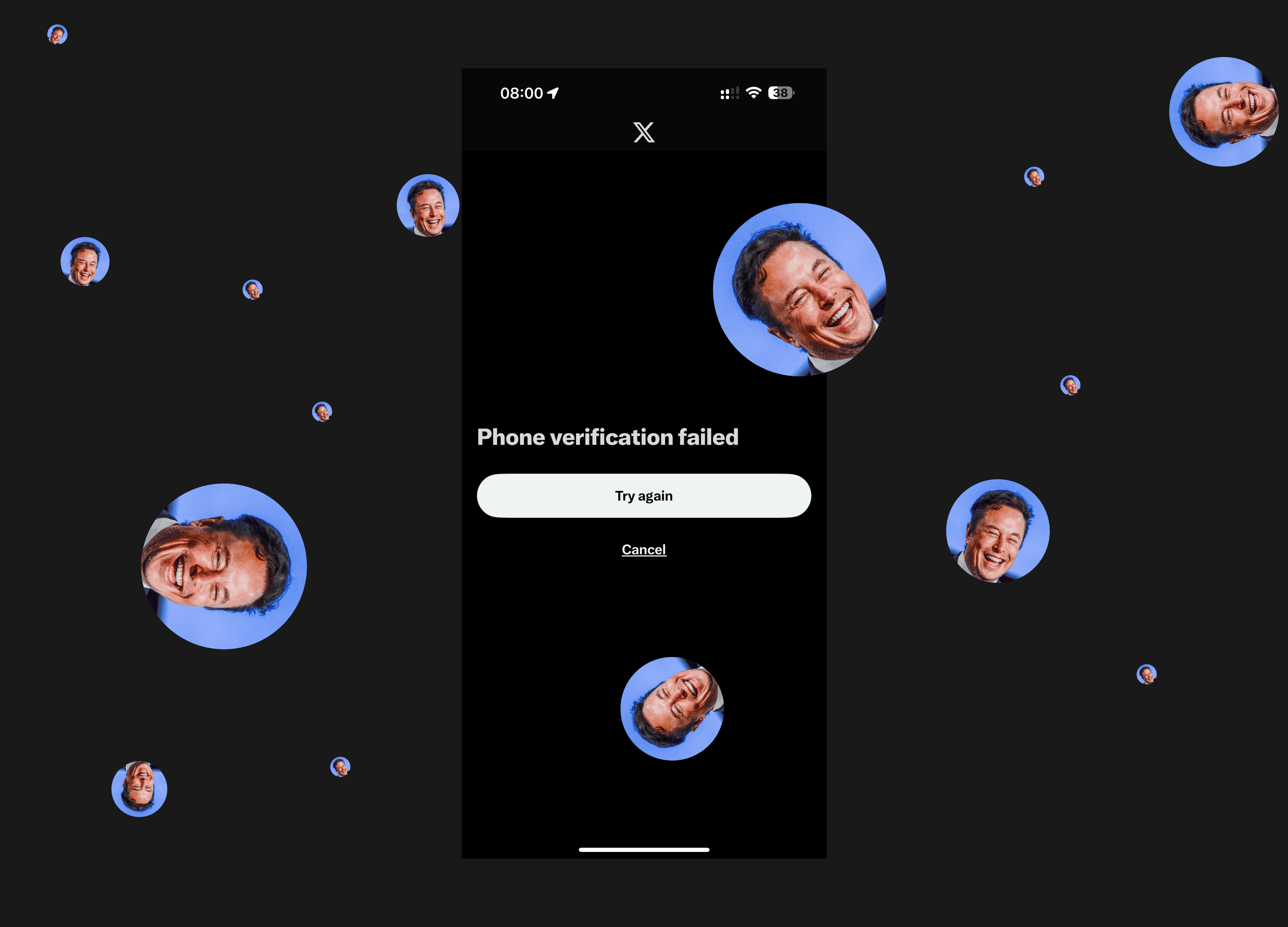Does a Website makes sense today?
With apps on the rise, a lot of web designers have jumped into product design, working on digital products. Are websites still worth it these days, or do we just rely on apps now?
Riccardo Marconato
Feb 1, 2024
With apps on the rise, a lot of web designers have jumped into product design, working on digital products. Are websites still worth it these days, or do we just rely on apps now?
Plus, a lot of companies have been moving into the app world lately. Some people are even saying web design is dead because websites just aren't as relevant anymore. Is that really true?
Websites make it easy to access information quickly
While apps offer a fun and interactive user experience with cool features, websites are still your go-to for quick and easy info. Think about it: when you need to look up something, do you instantly open a specific app, or just Google it?
Most of us naturally go to a search engine, finding what we need right from the search results. Websites give us info straightforwardly, without the hassle of downloads or installs that apps need. They're accessible from any device with an internet connection, making them super convenient for when you're on the move.
Also, search engines often gather and organize info from multiple websites, giving us a bunch of resources at our fingertips. This lets us quickly compare different sources and make informed decisions easily. So, while apps have their place, websites continue to be invaluable for accessing information fast and efficiently.
Websites are the best way to communicate
Websites are still key communication tools. They serve as an online presence for companies, organizations, and individuals. Through websites, businesses can show off their products and services to a global audience 24/7. Even with the rise of social media, websites are crucial for driving traffic to those platforms and building an online community.
Plus, websites offer a more direct and personal way to communicate through contact forms, live chats, and emails, allowing for quick and efficient communication with customers and clients.
People won't just find a company by searching in the App Store or Google Play Store—they're more likely to visit a website first and then decide if they want to download an app. So, having a well-designed and user-friendly website is vital for businesses to attract potential customers and engage with current ones.
Landing Page, the fastest way to create web ads
A landing page is a standalone web page made for marketing or advertising campaigns. It's crafted to grab the attention of potential customers and nudge them towards a specific action, like making a purchase or signing up for a newsletter.
Landing pages are key for businesses and marketers because they let you target messages and track conversions. Plus, they're a quick and easy way to create web ads without needing to build a full website.
The best way to set up a landing page is to add it to your website and run an ad campaign that directs people to that page and the conversion call to action at the end. It's a straightforward and effective way to create a campaign with a custom webpage that doesn't require installation to view.
A well-designed website effectively conveys your branding and visuals
A well-designed website also showcases branding and visual vibes. The color scheme, font choices, images, and layout all contribute to the overall feel of a company.
Branding is key for businesses because it establishes their identity and sets them apart from the competition. A website that nails branding through its design can boost brand recognition and customer loyalty.
Visuals like high-quality images and videos are crucial for grabbing visitors' attention and keeping them on the site. An eye-catching website can encourage potential customers to explore more and maybe even make a purchase or download an app.
Website development ETA and cost are lower
One of the advantages of having a well-designed website is that it can be more cost-effective and have a faster development time compared to an app. App development often requires different versions for different operating systems, while a website only needs one version accessible by any device with internet access.
Additionally, apps and their updates often require approval from app stores before being available to users, which can add time to the development process. With a website, you can have immediate access and control over its content without any delays.
Websites are easily shareable and accessible
Websites are also easily shareable through links or social media platforms, making it easier for potential customers to discover your business. This can lead to increased exposure and potentially higher traffic to your website.
Sharing a link from a website page with contacts is a breeze, but it's not something you can do with an app. This accessibility and shareability also make websites easier to market and promote through various online channels, such as search engine optimization (SEO) and pay-per-click (PPC) advertising.
Websites are still crucial for a strategy
While apps have become a popular choice for businesses, websites are still crucial for a comprehensive online strategy. Websites can serve as the foundation of your online presence and provide important information to potential customers.
For example, if your business has an app, but not everyone has downloaded it yet, having a website with similar features and information can still reach those who may be interested in your products or services.
Websites offer more flexibility in terms of design and customization compared to apps. While app designs must adhere to the standards set by app stores, websites can be tailored to fit your brand and aesthetic.
While apps may have advantages in terms of functionality and user experience, websites still play a crucial role in any business's online presence.
App or Website: What to Create?
When you're deciding between an app or a website for your business, it really boils down to your goals and who you're trying to reach. Apps are awesome for creating personalized and interactive experiences, making them perfect for businesses that thrive on user engagement, like gaming or social media. Meanwhile, websites are better for sharing information and services with a broader audience.
Think about who you're targeting and how they like to get their info. If you're aiming for a younger, tech-savvy crowd, an app might be your best bet. But if your audience is varied in age and tech skills, a website could be the way to go.
In the end, it's crucial to have both a strong website and app, as they can complement each other and hit different parts of your market. A website can serve as a landing page for those who aren't ready to download an app yet.
Whatever you decide, the key thing is to make sure both your website and app really represent your brand and offer a great user experience. Consistency across all platforms is crucial.
I can help with this! Whether you need a standout website or an easy-to-use app, I have the skills to craft a customized solution for your business. Let's team up to boost your digital presence and reach more people. Get in touch today!
Remember, having both an app and a website isn't just about reaching your audience—it's about making things convenient for them. With an app, users can get to your services or products with a tap. A website gives more detailed info and can be browsed on different devices.
Plus, having both can amp up your SEO game. Multiple platforms linking back to your brand can increase your visibility and improve your search engine ranking.

Riccardo Marconato
I design high-end digital experiences and visual design for the crypto/Web3, AI, and tech industries.









